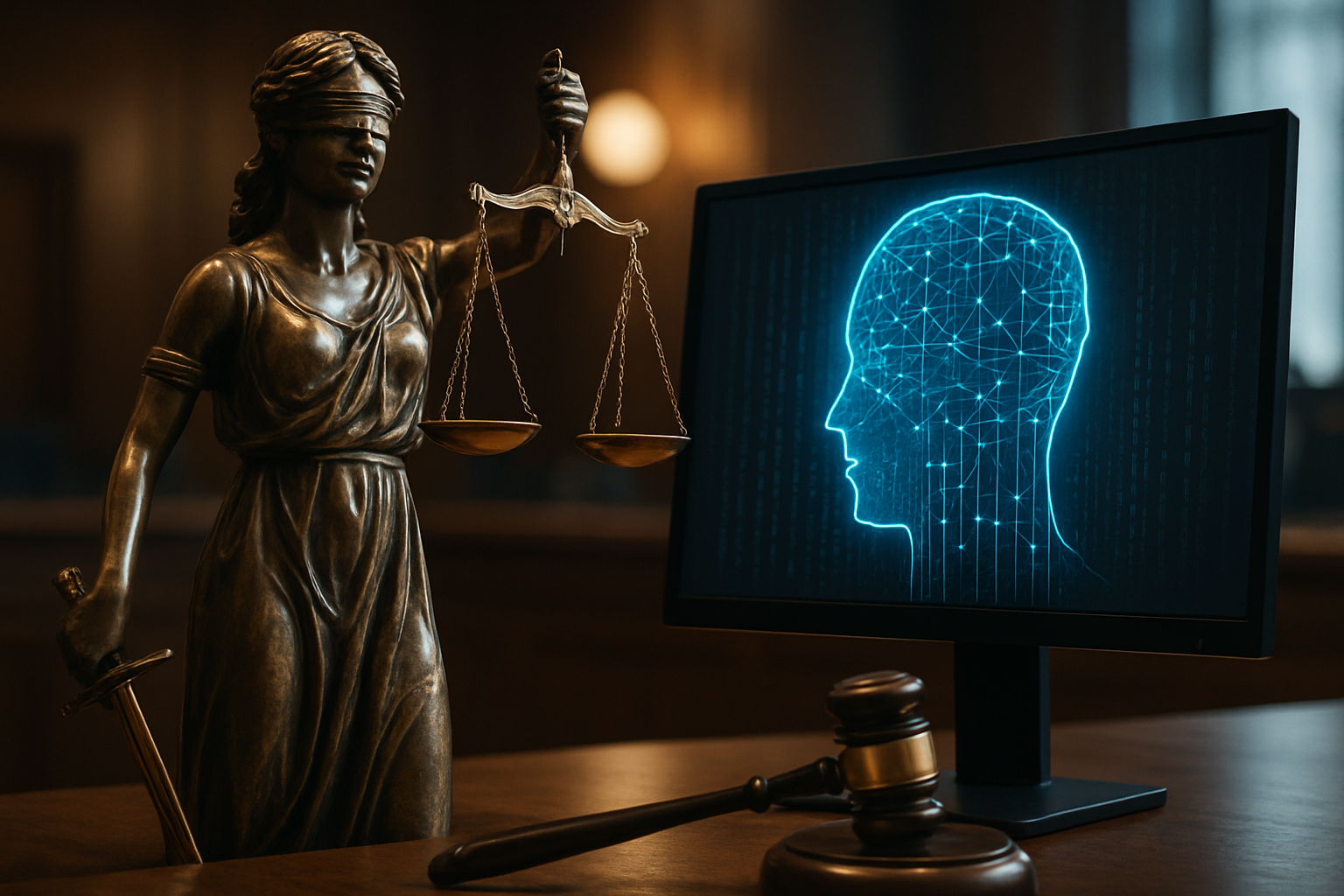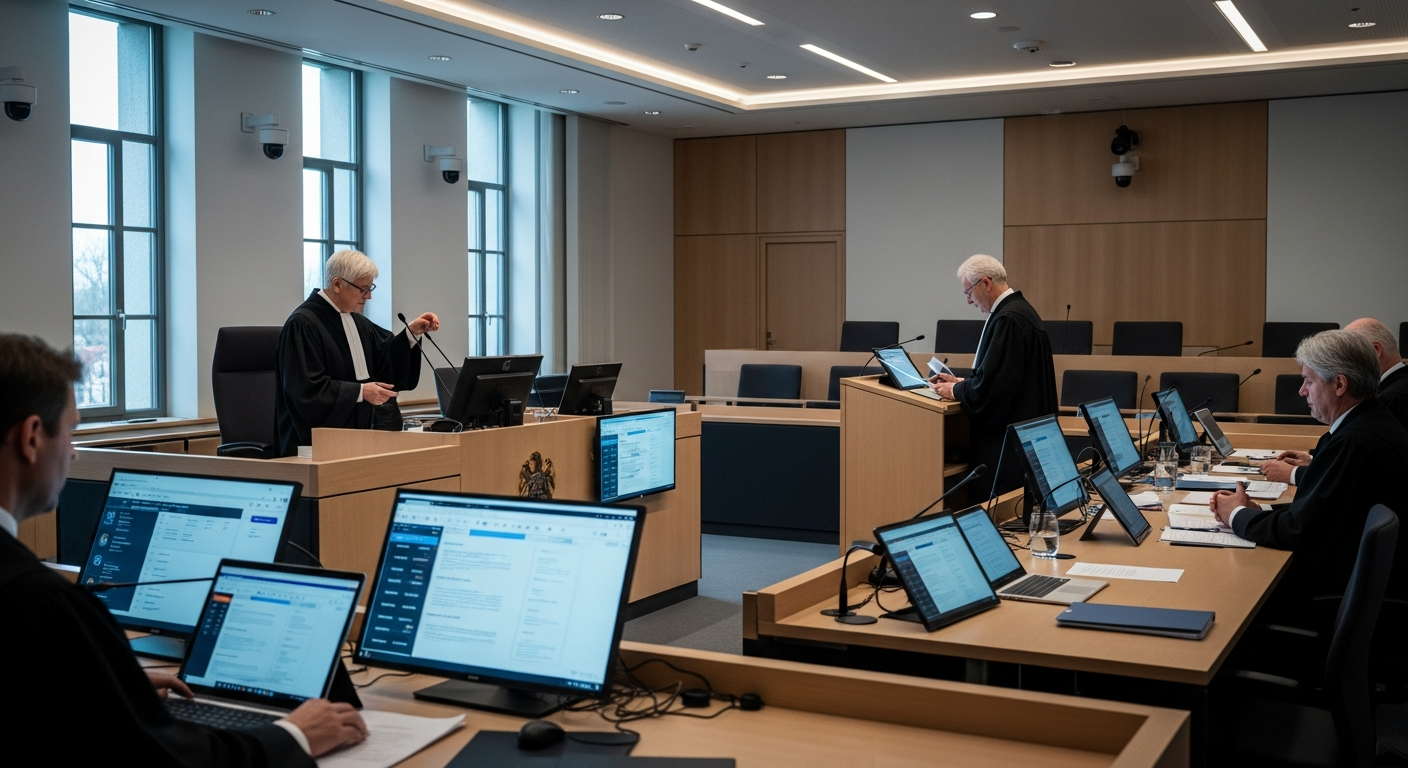Title: Algorithmic Justice: Reshaping Legal Decision-Making
Introduction: In an era where artificial intelligence permeates every aspect of our lives, the legal system stands at a crossroads. Algorithmic justice, a revolutionary concept, promises to transform how legal decisions are made. But as we embrace this technological leap, we must grapple with its profound implications for fairness, transparency, and human rights.

Historical Context and Legal Precedents
The roots of algorithmic justice can be traced back to the early 2000s when risk assessment tools began to be used in criminal justice settings. These tools, often based on statistical models, were designed to predict an individual’s likelihood of reoffending. As technology advanced, so did the sophistication of these algorithms. The landmark case State v. Loomis in 2016 brought the use of algorithmic risk assessments in sentencing to the forefront of legal discourse, raising critical questions about due process and the right to an individualized sentence.
Current Legal Landscape
Today, the application of algorithmic justice extends far beyond risk assessments. Courts are experimenting with AI-powered tools for various purposes, including case outcome prediction, document analysis, and even jury selection. In 2019, Estonia made headlines by announcing plans to develop an AI judge for small claims disputes. Meanwhile, China has implemented “smart courts” that use AI to assist judges in decision-making. These developments have sparked a global debate on the role of technology in the courtroom.
Ethical and Legal Challenges
While the potential benefits of algorithmic justice are significant, so are the challenges it presents. One of the primary concerns is the potential for bias. Algorithms are trained on historical data, which may reflect and perpetuate existing societal biases. This raises serious questions about fairness and equal protection under the law. Additionally, the “black box” nature of many AI systems makes it difficult to scrutinize their decision-making processes, potentially violating the right to due process.
Impact on Legal Professionals and the Justice System
The rise of algorithmic justice is reshaping the legal profession. Lawyers and judges must now grapple with understanding complex algorithms and their implications. This shift necessitates new forms of legal education and training. Furthermore, the increasing reliance on AI in legal decision-making raises questions about the future role of human judgment in the courtroom. Will judges become mere overseers of algorithmic processes, or will human discretion remain a crucial element of justice?
Legislative and Policy Responses
Governments and legal bodies worldwide are beginning to respond to the challenges posed by algorithmic justice. The European Union’s proposed AI Act includes provisions specifically addressing the use of AI in the justice system. In the United States, several states have passed laws requiring transparency and human oversight in the use of risk assessment algorithms. These legislative efforts aim to strike a balance between harnessing the benefits of AI while safeguarding fundamental rights and principles of justice.
The Future of Algorithmic Justice
As we look to the future, it’s clear that algorithmic justice will play an increasingly significant role in legal systems worldwide. The challenge lies in harnessing its potential while mitigating its risks. This will require ongoing collaboration between legal professionals, technologists, ethicists, and policymakers. Developing robust frameworks for algorithm accountability, ensuring transparency, and maintaining human oversight will be crucial in shaping a justice system that leverages technology while upholding the principles of fairness and equality.
In conclusion, algorithmic justice represents a paradigm shift in the legal world. As we navigate this new frontier, we must remain vigilant in ensuring that the pursuit of efficiency and objectivity does not come at the cost of fundamental human rights and the core principles of justice. The evolving landscape of algorithmic justice will undoubtedly continue to challenge our legal frameworks and ethical standards, shaping the future of law and governance in profound ways.






